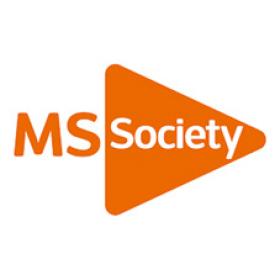£1.9 million award for MS Society Edinburgh Centre for MS Research

The MS Society has awarded over £1.8 million to fund a research ‘Centre of Excellence’ at the University of Edinburgh, as part of its fight to stop multiple sclerosis (MS). This major grant will allow scientists at the centre, led by Professor Siddharhtan Chandran, to find new treatments, faster, for tens of thousands of people living with progressive forms of MS in Scotland and across the UK, who currently have nothing to stop disability progression.
MS affects more than 15,000 people in Scotland. It damages nerves in your body and makes it harder to do everyday things, like walk, talk, eat and think. Thanks to research, there are now over a dozen licensed treatments for people with relapsing forms of MS with the first treatments for primary and secondary progressive MS approved for use on NHS Scotland in 2020. These treatments are able to target rogue immune activity, and reduce the damage to myelin – the protective coating that surrounds our nerves, which is damaged in MS. But to truly stop MS, we need to find treatments can replace lost myelin, and protect nerves from damage.
One pioneering project made possible by this funding is a new drug testing platform, being developed by researchers at the University of Edinburgh. The platform will identify potential new treatments by using screening robots to test thousands of molecules on zebrafish with an MS-like condition. Potential drug targets developed from both centres will be tested on a novel human model of MS grown in a dish from human stem cells, and human brain tissue samples. By using all of these diverse testing methods together for the first time, it will help researchers prioritise treatments that will have the greatest chance of success in clinical trials.
The Edinburgh centre will also be developing new ways to test how effective neuroprotective and myelin repair drugs are in clinical trials. Including cutting edge brain imaging these could be taken up by scientists around the world, and answer long-standing questions about the role of nerve damage and remyelination in MS.
Professor Siddharthan Chandran will co-lead the work at the MS Society Edinburgh Centre for MS Research with Professors David Lyons, Anna Williams and Adam Waldman. Professor Chandran said: “This pivotal investment from the MS Society will allow us to lead vital work in the study of nerve damage, which causes long-term disability in people living with MS. We’ll be developing new ways to measure it, identifying new targets for neuroprotective drugs, and testing out the most promising in the lab. Our ultimate goal is that five years from now we’ll have substantially improved our understanding, and hopefully be beginning to translate this into new treatments that slow, stop or even reverse disability progression in MS.”
MS Society Scotland director, Morna Simpkins, said: “Scotland has one of the highest rates of MS in the world with well over 15,000 people living with the condition. Research we have backed has played a key role in finding new treatments for people affected by MS across the country. But thousands of people with progressive MS still don’t have access to therapies that could help them and we need to work fast.
“Our top priority is finding treatments that slow or stop progression for everyone and, today, we can see a future where nobody has to worry about their MS getting worse. The ground-breaking work happening in Edinburgh is vital in helping us to reach that goal.”
The MS Society has funded research at the Centre since 2007, already contributing to major advances in the field of MS research. Last year in Edinburgh, researchers made an exciting discovery in mice, identifying that a diabetes drug gives nerves an energy boost and protects them from damage, using a natural mechanism they coined axonal response of mitochondria to demyelination, or ARMD.
The MS funded centres in Edinburgh and Cambridge have fruitful history of collaboration and following a recent trial of the cancer drug bexarotene which proved that myelin repair in humans is possible, worked together to identify the role of RXR gamma (the target molecule for bexarotene) in myelin repair.

